Common Pochard
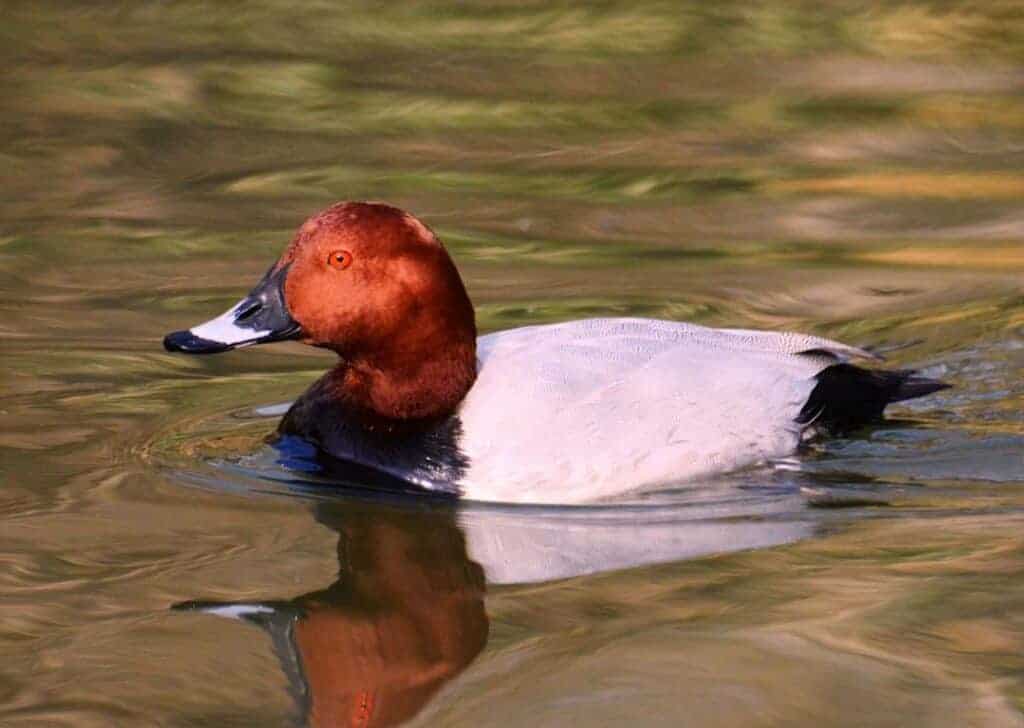
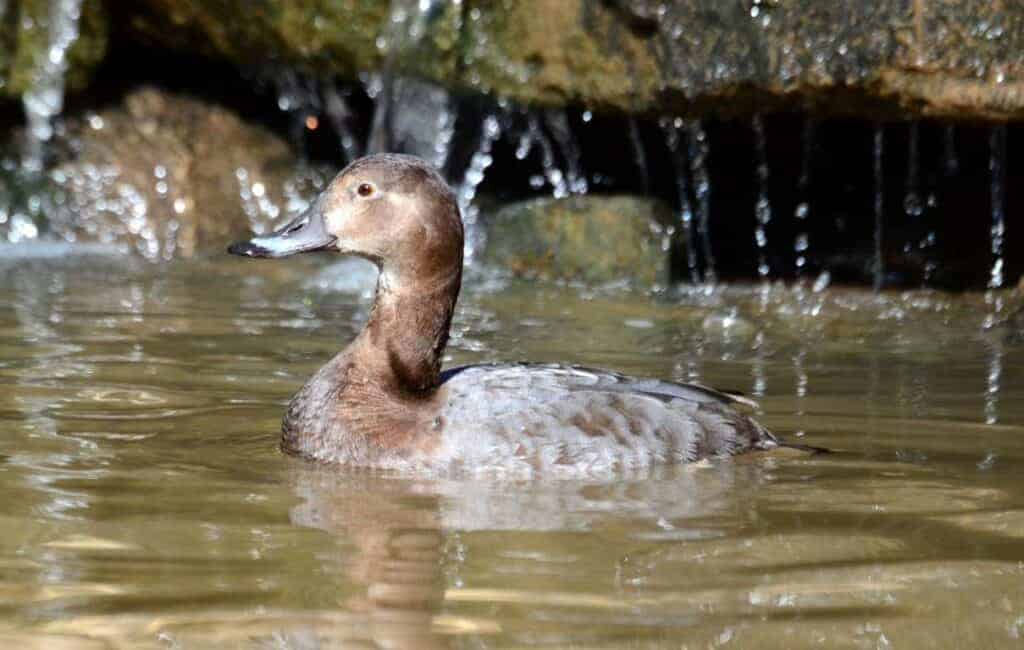
Unaggressive and easy to keep in a mixed-species flock in captivity, their main requirement is for clean and reasonably deep water.
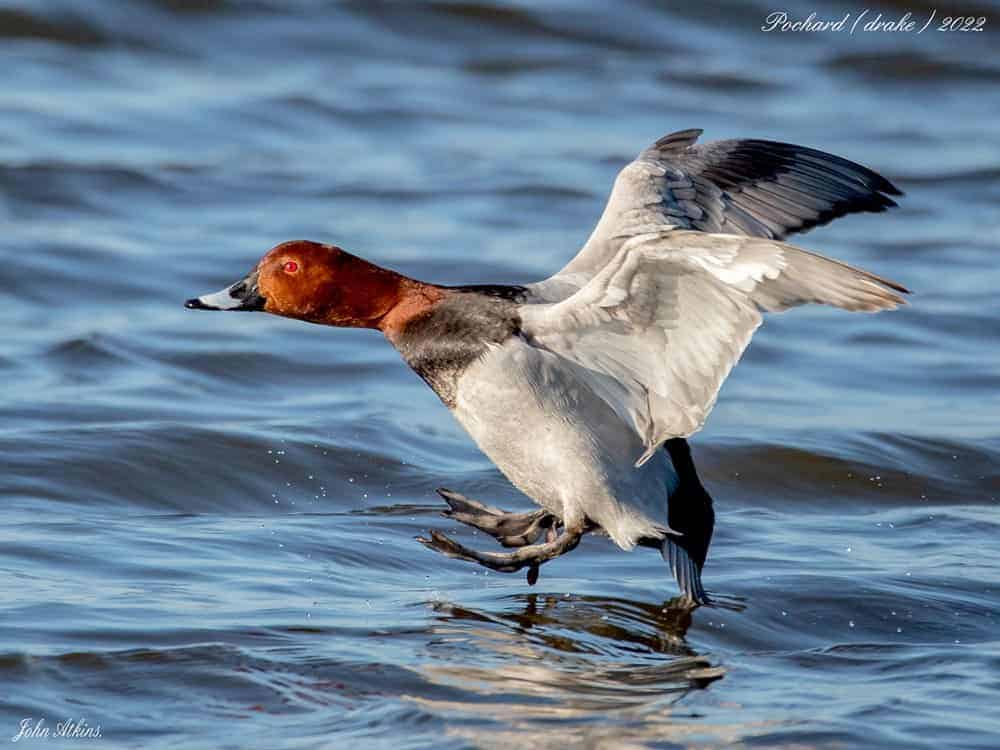
Aythya ferina
With its distinctive bright chestnut head, contrasting with grey back and body and black breast, a Common Pochard drake is a handsome duck. It is one of the most familiar of wildfowl in the British Isles, with as many as 59,500 wintering here. Most of these are birds from north-east Europe or Russia, our breeding population is estimated at around 500 pairs.
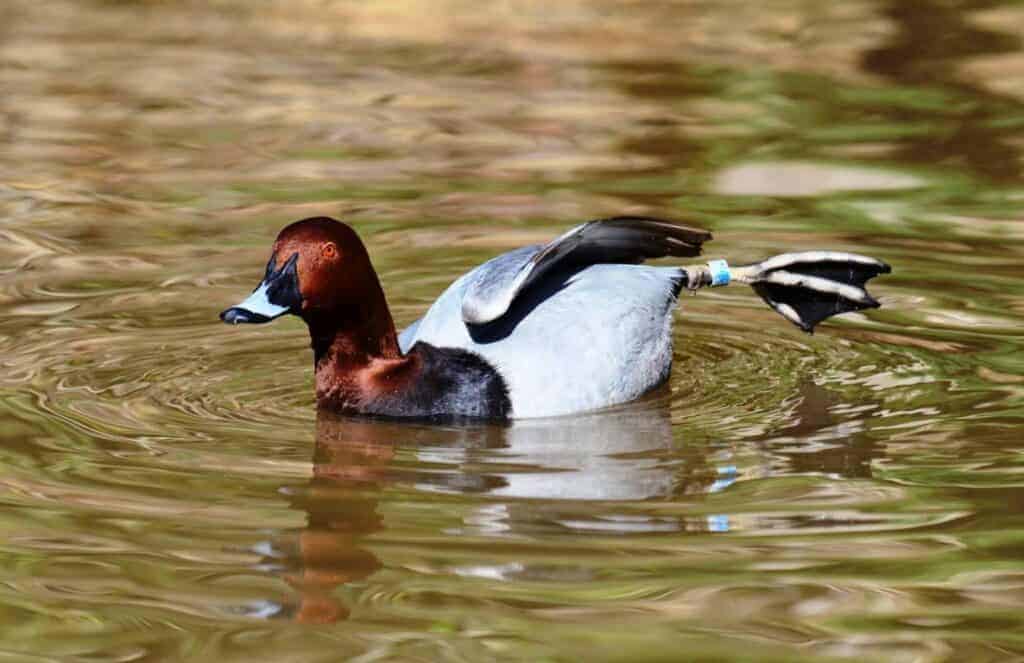
Pochard are classic diving ducks, with a stocky build, short neck and legs set well back on the body. They find nearly all their food by diving, and unlike Tufted Ducks Aythya fuligula, they are predominately vegetarian. Highly sociable birds, they are invariably found in flocks outside the breeding season, and these can number many thousands. The drakes tend to be hardier than the ducks, with the latter migrating farther south for the winter, so wintering flocks in the UK are typically dominated by drakes.
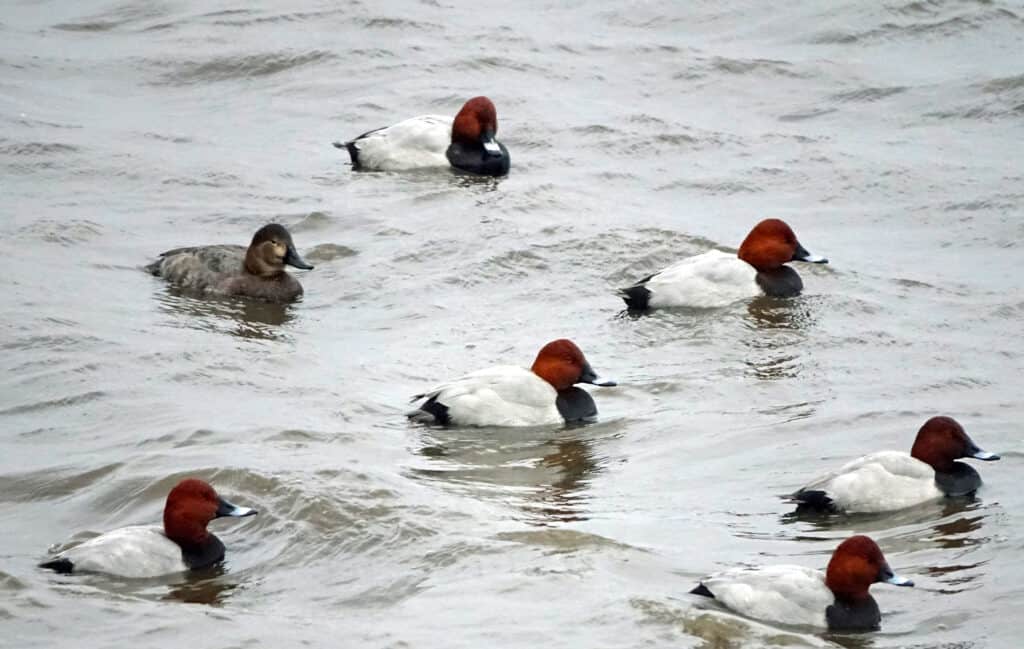
Where both sexes share a site, the females can hold their own and do not lose out on feeding opportunities. Across Britain as a whole, the wintering population is about 70% males and 30% females, a more imbalanced sex ratio than any other wintering duck, but it varies with latitude from about 8:1 in the north of Scotland to 3:2 in southern England (Migration Atlas).
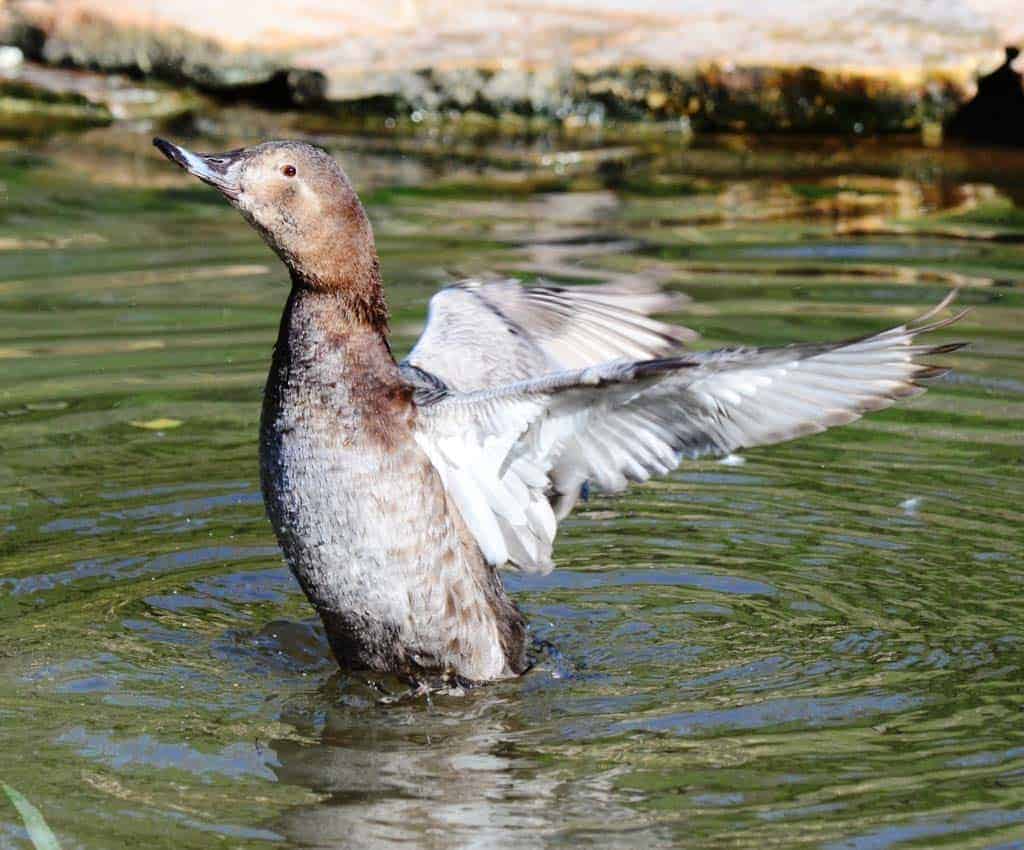
The Common Pochard lays her clutch of around eight green-grey eggs late in the spring. Incubation takes 25 days, and the young can become independent as soon as three weeks after hatching.
FURTHER READING
Fox, A.D. (2019)BOU blog. Climate change and shifting waterbird distributions.
Fox, A. D., Cristensen, T.K. (2018) Ibis Volume 160, Issue 4 p. 929-935 Could falling female sex ratios among first-winter northwest European duck populations contribute to skewed adult sex ratios and overall population declines?
Fox, A. D. et al. (2016) Wildfowl 66, WWT. Recent changes in the abundance of Common Pochard Aythya ferina breeding in Europe.
Harteman Wildfowl Aviaries Common Pochard
Pöysä, H., Linkola, P. & Paasivaara, A. (2019) Journal of Ornithology 160, 1015–1023. Breeding sex ratios in two declining diving duck species: between-year variation and changes over six decades.